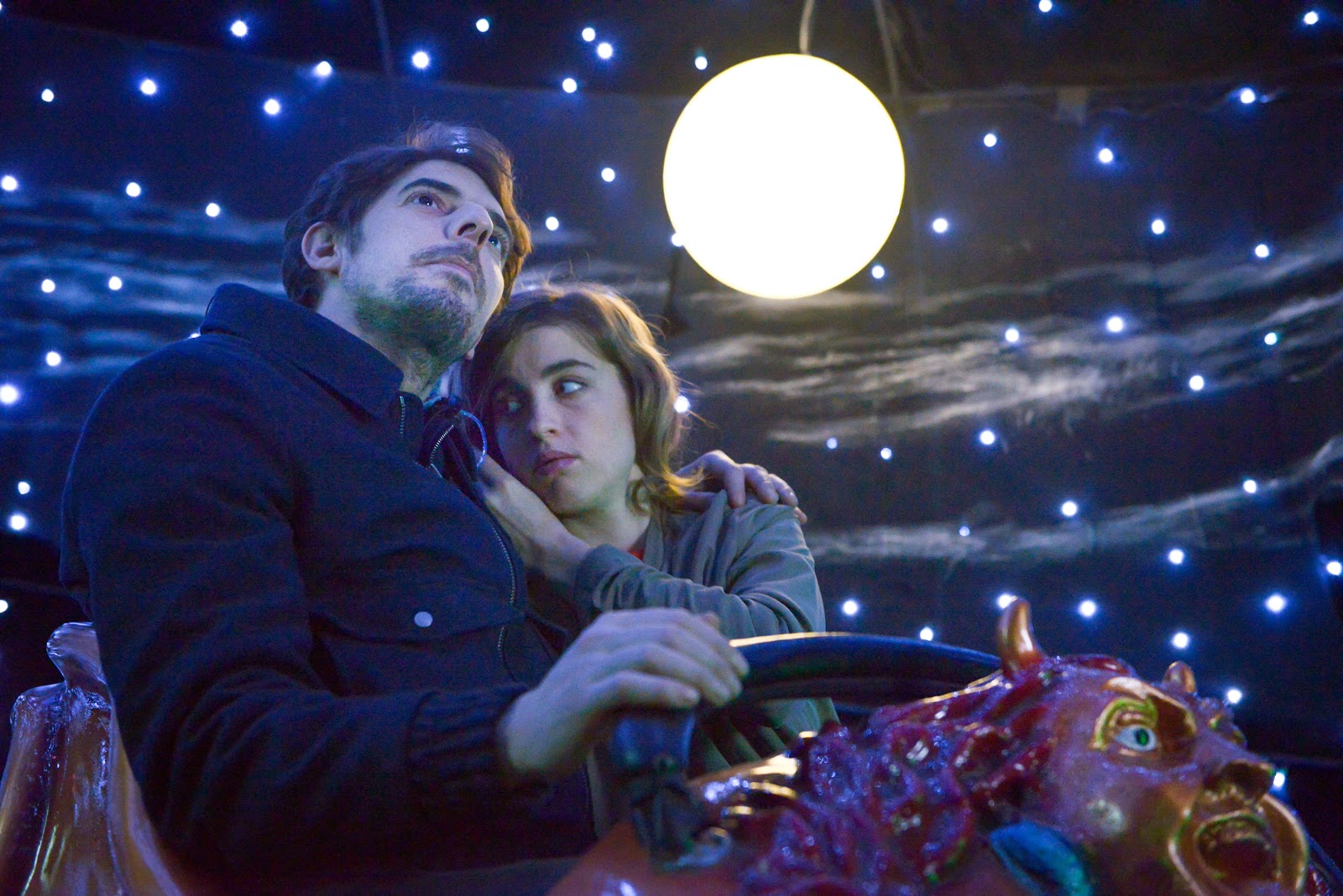By April Austen |@aprilausten
Photo by: Received from media release
French crime-comedy-drama The Trouble With You (2018) proclaims to be one of the best comedies of the year after being a smash hit at Cannes last year and receiving nominations for nine César Awards. In reality, the film brings the occasional laugh but largely oversteps the line with its unpleasant humour and themes.
From director Pierre Salvadori and writers Benjamin Charbit (screenplay) and Benoît Graffin (original idea), The Trouble With You is initally established as a humurous film. The opening credits and scene resembles an action-comedy with bold, colourful font and over the top music, giving optimism to the likely hilarity to follow.
The story centres around police detective Yvonne Santi (Adèle Haenel) –the young widow of police chief Jean Santi (Vincent Elbaz) – who tells her son Théo (Octave Bossuet) tales of his late father’s bravery. Yvonne’s world comes crashing down when she discovers Jean was a corrupt cop who had, amongst other crimes, put an innocent man in jail for his own gain. This is the point where the film begins to spiral out of control. The innocent man, Antoine (Pio Marmaï), is released from prison for completing his sentence. Jittery and always talking to himself, he is referred to as “disturbed” and a “psychopath” throughout the film. The depiction of an ex-prisoner leaving jail in such a condition makes a strong statement on the ability of prisoners to reintegrate into society which is an unhelpful message to be spreading.
Yvonne becomes obsessed with Antoine, stalking his every move with no real purpose other than the unconscionable guilt she feels on behalf of the actions of Jean. Innocent before his time in prison, Antoine is no longer as he steals cars and cash, pepper sprays girls, bites the ears off anyone he can and burns restaurants to the ground. His crimes are excessively violent and hard to watch, particularly the scene of him attacking a girl outside a nightclub after she confronted him for stealing her purse. Worse still, is that Yvonne continues to excuse his behaviour, describing his violence as “his right” for being wrongfully convicted. While this might be an attempt at humour, Salvadori misses the mark. A society where everyone operates by this mindset is horrifying to imagine and yet it feels as though this film condones such belief.
Yvonne develops a romantic relationship with Antoine, but despite her obsession, she continually stands him up to be with her colleague Louis (Damien Bonnard) – her other new romantic interest. Between the two, she seems to have little time for son Théo who it is difficult not to feel sorry for. Sympathy is also drawn towards Antoine’s wife Agnès (Audrey Tautou), whose own suffering while her husband was wrongfully imprisoned is totally ignored by the filmmakers. Her life was disrupted, if not somewhat destroyed, by the same ‘wrongs’ as her husband. And yet we do not see her living a violent, criminal and consequence-free existence as a result which raises issues of gender disparity. Antoine’s actions are excused and understood, yet a woman is not offered the same lenience.
The Trouble With You is a well-paced film, its jam-packed plot holding audience’s attention the entire way. There are numerous laugh-out-loud funny moments which enjoyably punctuate the crime, largely revolving around comedic police incompetence that likens itself to The Naked Gun, Police Squad or Brooklyn Nine-Nine series’. The acting is good, with each character being portrayed with depth and a multiplicity of motives behind their actions, despite most not being particularly likeable.
The film does not live up to its self-inflated hype and instead, is more likely to just leave Australian audiences questioning the sense of humour of the French.
The Trouble With You is currently showing at Palace Cinemas.


